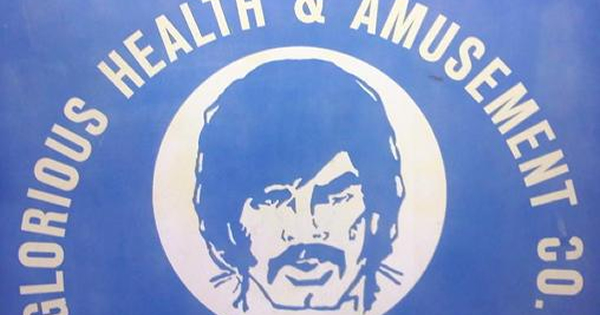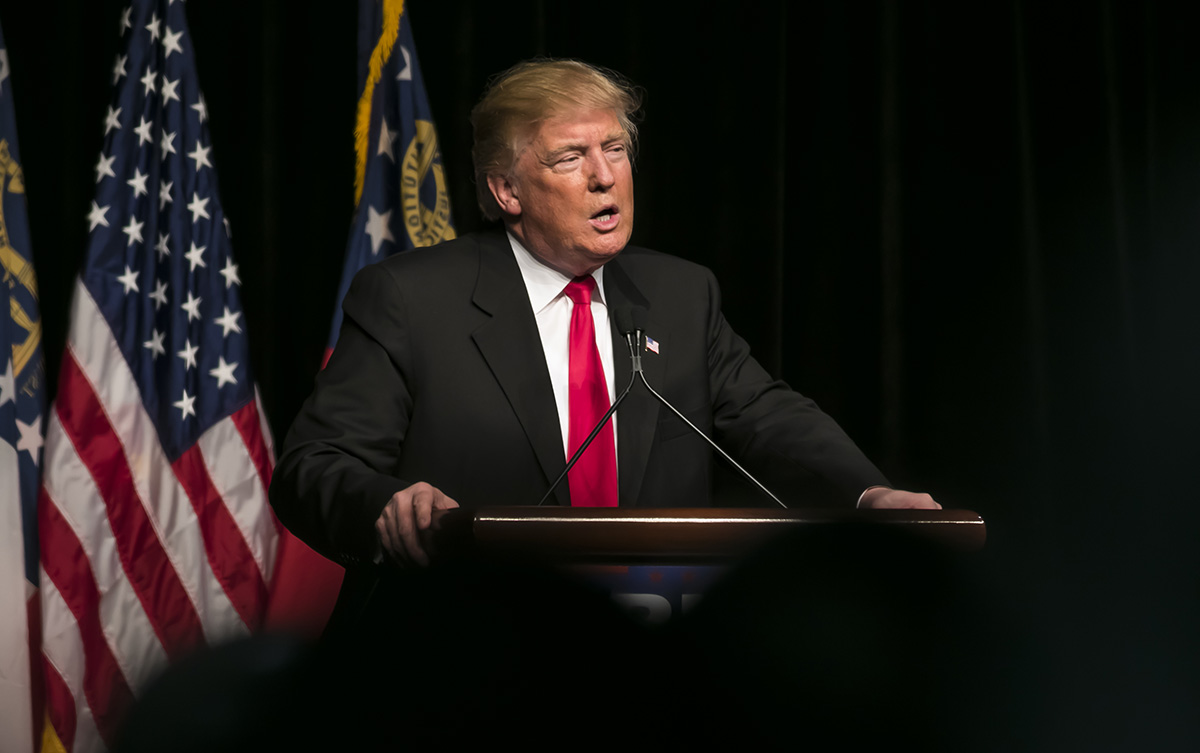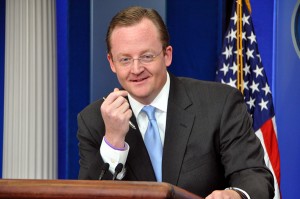National
Gibbs dodges question on Obama’s early marriage support

White House Press Secretary Robert Gibbs today dodged a question about whether President Obama has “backtracked” from his earlier support of same-sex marriage.
In 1996, while campaigning for an Illinois Senate seat, Obama indicated his support on a candidate questionnaire for the Windy City Times, writing, “I favor legalizing same-sex marriages, and would fight efforts to prohibit such marriages.”
Asked today about the questionnaire by the Washington Blade, Gibbs declined to address it directly.
“I think there’s a whole host of issues that I would direct you to the campaign on — on different questionnaires and I would again reiterate what the president has said recently on that issue,” Gibbs said.
Asked whether he questions the accuracy of the 1996 questionnaire response, Gibbs replied, “Again, I’m happy to send you the several thousand clips of which went around during the course of 2008 on a whole host of those issues.”
Following his response to the second Blade question, Gibbs said, “Thanks guys,” seeming to indicate that he would take no more questions. Gibbs stayed at the podium after reporters in the White House press corps pressed him to take more questions.
Shin Inouye, a White House spokesperson, clarified that press briefings traditionally wrap up when the AP reporter signals an end to the briefing.
“As the transcript clearly shows, the AP reporter noted the end of the press briefing with the customary ‘thank you.’ Even after that, Gibbs did stay on to take 18 additional questions,” Inouye said. ” To suggest that he would step away from the podium before the briefing is over is not only wrong, it’s offensive.”
In the 1996 questionnaire response, Obama unequivocally stated his support for same-sex marriage, which is different from his current position on the issue. His position since has been that marriage should be reserved for one man and one woman. Still, the president has suggested his position could “evolve” on the matter and said last month he’s “wrestling” with the idea of marriage rights for gay couples.
“Like a lot of people, I’m wrestling with this,” Obama said in an interview last month with The Advocate. “I’ve wrestled with the fact that marriage traditionally has had a different connotation. But I also have a lot of very close friends who are married gay or lesbian couples.”
Although he opposes same-sex marriage, Obama as a U.S. senator voted against a U.S. constitutional amendment banning same-sex marriage and said he supports full repeal of the Defense of Marriage Act, which prohibits the federal government from recognizing same-sex unions.
Later during the conference, Mediaite’s Tommy Christopher asked whether the president has finally reached some new position on same-sex marriage or would address the issue during the State of the Union address on Tuesday.
“As I said earlier, I don’t have an update to what — to reiterating that it’s something that he thinks a lot about,” Gibbs said.
A number of gay rights supporters have called on Obama to declare support for same-sex marriage during the State of the Union address. On Sunday, the New York Times published an editorial from gay political pundit and sex columnist Dan Savage, who urged the president to address marriage rights for gay couples during the speech.
A partial transcript of the exchange with Gibbs over the marriage issue follows:
Washington Blade: Back in 1996, when the president was running to become an Illinois state senator, he stated in questionnaire response to what is now the Windy City Times that he supports same-sex marriage. He wrote, “I favor legalizing same-sex marriages, and would fight efforts to prohibit such marriages.” That’s not the president’s current position. He has backtracked on a earlier commitment he made to gay and lesbian Americans?
Robert Gibbs: I think there’s a whole host of issues that I would direct you to the campaign on — on different questionnaires and I would again reiterate what the president has said recently on that issue.
Blade: But do you dispute the accuracy of this questionnaire response?
Gibbs: Again, I’m happy to send you the several thousand clips of which went around during the course of 2008 on a whole host of those issues.
Thanks guys.
…
Mediaite: I asked you last week if the president was going to talk about repealing DOMA or about same-sex marriage in the [State of the Union] speech. And you know, if you want to volunteer an answer on that you can, but I also asked you —
Gibbs: I’ll volunteer that as I told, Keith, it’s around 9:05 tomorrow —
Mediaite: My follow-up is —
Gibbs: Your follow-up to my non-answer?
Mediaite: I also asked you if the president — he said his personal view on same-sex marriage is evolving and so I wanted to follow-up and see has he come to a new personal view —
Gibbs: As I said earlier, I don’t have an update to what — to reiterating that it’s something that he thinks a lot about.
Mediaite: Do you know when he might speak about that if he’s not going to speak about it —
Gibbs: I don’t.
District of Columbia
Fire by arson forced temporary shutdown of Glorious Health Club
Spa and art gallery catering to gay
men expects to reopen in August

In a little noticed development, D.C.’s Glorious Health Club, which bills itself as a spa, art gallery, and community center catering to gay men, was forced to close on May 19 after one or more unidentified suspects ignited a fire inside the club that D.C. fire department officials have ruled an act of arson.
Robert Siegel, the club’s owner, told the Washington Blade that he and investigators with the D.C. Fire and Emergency Medical Services Department believe one or more yet unidentified suspects broke into the kitchen of the former warehouse building where the club is located at 2120 West Virginia Ave., N.E.
According to Siegel, investigators with the fire department’s arson squad believe a flammable liquid was used to start the fire in the kitchen and in two other locations within the building.
“Three separate fires were started,” Siegel said. “They started one on a staircase and one on the upstairs storage area,” he said in addition to the one in the kitchen. He said about 40 patrons were in the club at the time the fire started, and all were able to leave without injury.
Siegel said the fire caused $500,000 worth of damage to his building, with some of the damage caused — understandably he said — by fire fighters who had to rip open doors and break through the roof to gain access to the flames that engulfed parts of the interior of the building. He said he arranged for repair work to begin after the fire was extinguished.
“I expect we’ll be reopening in about a month from now,” he said. “And we’ll be a bigger and better place.”
Fortunately, Siegel said, most of the artwork and art exhibits located in the club were not damaged.
“It was basically the kitchen, patio, and the roof,” he said, adding that much of the solar panels he had on the roof were destroyed by the fire or by firefighters seeking to gain access to the building.
“And the fire was so hot it did structural damage to the roof,” he said. “It actually melted steel. We’re talking about 50-foot steel beams that have to be replaced,” he told the Blade. “That’s $100,000 right there.”
Vito Maggiolo, a spokesperson for the D.C. Fire and Emergency Medical Services Department, said the fire was “ruled incendiary/arson” and is “under active investigation.”
It could not immediately be determined if one or more people responsible for the fire targeted the Glorious Health Club because it’s a gay community establishment.
National
House Republicans propose steep cuts in federal AIDS budget
Advocacy groups say move would eliminate ‘Ending HIV Epidemic’ initiative

The Republican-controlled U.S. House Subcommittee on Labor, Health, and Human Services, Education, and Related Agencies approved a spending bill on June 26 that calls for cutting at least $419 million from federal AIDS programs that AIDS activists say would have a devastating impact on efforts to greatly reduce the number of new HIV infections by 2030.
The subcommittee’s proposed bill, which includes billions of dollars in cuts in a wide range of other federal health, education, and human services related programs, is scheduled to be considered by the full House Appropriations Committee on July 10. Officials with AIDS advocacy groups say they are hopeful that the full committee, like last year, will refuse to approve the proposed cuts in the AIDS budget.
The proposed GOP cuts would eliminate $214 million from the U.S. Centers for Disease Control and Prevention’s HIV prevention programs, $190 million from the Ryan White HIV/AIDS Program, and $15 million from the Department of Health and Human Services Secretary’s Minority HIV/AIDS Program.
Activists say the impact of those cuts would kill the federal government’s Ending the HIV Epidemic initiative, which among other things, calls for reducing the number of new HIV infections in the U.S. by 75 percent by 2025 and by 90 percent by 2030. The activists point out that ironically the Ending the HIV Epidemic initiative was launched during the administration of President Donald Trump.
“Instead of providing new investments in ending HIV by increasing funding for testing, prevention programs, such as PrEP, and life-saving care and treatment, House Republicans are again choosing to go through a worthless exercise of cutting programs that the American people depend on and will never pass,” said Carl Schmid, executive director of the HIV + Hepatitis Policy Institute.
“While we vigorously fight these cuts, we look forward to working with the entire Congress in a bipartisan fashion on spending bills that can actually become law,” Schmid said in a statement.
Schmid noted that the bill also includes provisions known as “policy riders” that would take away rights and protections from women, such as access to birth control and abortion, and for minorities, including LGBTQ people.
According to a statement released by the office of Rep. Rosa DeLauro (D-Conn.), who is the ranking minority member of the House Appropriations Committee, one of the policy riders would “block the Biden administration’s policies to ensure nondiscrimination on the basis of gender identity and sexual orientation.’ The statement says another policy rider would “prevent policies or programs intended to promote diversity, equality, or inclusion.”
Most political observers believe the Democratic-controlled U.S. Senate would also kill the GOP proposed policy riders and cuts in the AIDS budget if the full Republican-controlled House were to approve the budget bill passed by the appropriations subcommittee.
Rep, Tom Cole (R-Okla.), who serves as chair of the full House Appropriations Committee, released a statement on June 27 defending the subcommittee’s bill and its proposed spending cuts. “The bill provides appropriate and fiscally responsible funding to ensure these departments can continue to perform their core missions while also acknowledging the fiscal realities facing our nation,” he said.
“Importantly, the bill pushes back on the Biden administration’s out-of-touch progressive policy agenda, preventing this White House from finalizing or implementing controversial rules or executive orders,” Cole said in his statement. “It also preserves long standing bipartisan policy provisions protecting the right to life.”
U.S. Supreme Court
Concern over marriage equality in US grows two decades after first Mass. same-sex weddings
Gay and lesbian couples began to marry in Bay State in 2004

Two decades after Massachusetts became the first state to legalize same-sex marriage, a new study reveals both significant progress and ongoing challenges for married LGBTQ couples in the U.S., with a growing sense of insecurity about the future of their rights.
The Williams Institute at UCLA School of Law surveyed 484 married same-sex couples from all 50 states and D.C. The study, released Monday, marks the 20th anniversary of legal same-sex marriage in the U.S.
Researchers found that 93 percent of respondents cited love as a primary reason for marrying, with 75 percent also mentioning legal protections. Over 83 percent reported positive changes in their sense of security, and 74.6 percent noted improved life satisfaction since marrying.
However, the study also highlighted persistent discrimination and growing concerns about the future. About 11 percent of couples who had a wedding reported facing prejudice during the planning process.
Alarmingly, nearly 80 percent of respondents expressed concern about the potential overturning of the 2015 Obergefell v. Hodges decision, which legalized same-sex marriage nationwide. This anxiety has been exacerbated by initiatives like Project 2025, a conservative policy blueprint that some fear could roll back LGBTQ rights if implemented.
The possibility of a former President Donald Trump victory in the upcoming election has further intensified these concerns. Many respondents cited Trump’s previous U.S. Supreme Court appointments and his statements on LGBTQ issues as reasons for their apprehension. One participant stated, “The thought of another Trump presidency keeps me up at night. We’ve come so far, but it feels like our rights could be stripped away at any moment.”
The current political climate has 29 percent of respondents considering moving to another state, with 52.9 percent citing socio-political concerns as a primary reason. This reflects a growing sense of insecurity among LGBTQ couples about their rights and freedoms.
Brad Sears, founding executive director of the Williams Institute, noted, “The data clearly show that marriage equality has had a profound positive impact on same-sex couples and their families. However, it also reveals ongoing challenges and serious concerns about the future of these rights in light of current political trends and the upcoming election.”
Christy Mallory, legal director at the Williams Institute and lead author of the study, added, “This research provides crucial insights into the lived experiences of same-sex couples two decades after marriage equality began in the U.S. The high level of concern about potential loss of rights underscores the continued importance of legal protections and public support for LGBTQ+ equality.”
The study found that 30 percent of surveyed couples have children, with 58.1 percent of those parents reporting that marriage provided more stability for their families. However, many of these families now worry about the security of their legal status in the face of potential policy changes and shifting political landscapes.
As the nation reflects on two decades of marriage equality, the study underscores both the transformative power of legal recognition and the ongoing need for vigilance in protecting LGBTQ+ rights. The findings highlight the complex reality faced by same-sex couples in America today: Celebrating hard-won progress while grappling with uncertainty about the future, particularly in light of upcoming political events and potential shifts in leadership.
-

 Canada2 days ago
Canada2 days agoToronto Pride parade cancelled after pro-Palestinian protesters disrupt it
-

 Baltimore4 days ago
Baltimore4 days agoDespite record crowds, Baltimore Pride’s LGBTQ critics say organizers dropped the ball
-

 Sports4 days ago
Sports4 days agoHaters troll official Olympics Instagram for celebrating gay athlete and boyfriend
-

 U.S. Supreme Court1 day ago
U.S. Supreme Court1 day agoConcern over marriage equality in US grows two decades after first Mass. same-sex weddings










